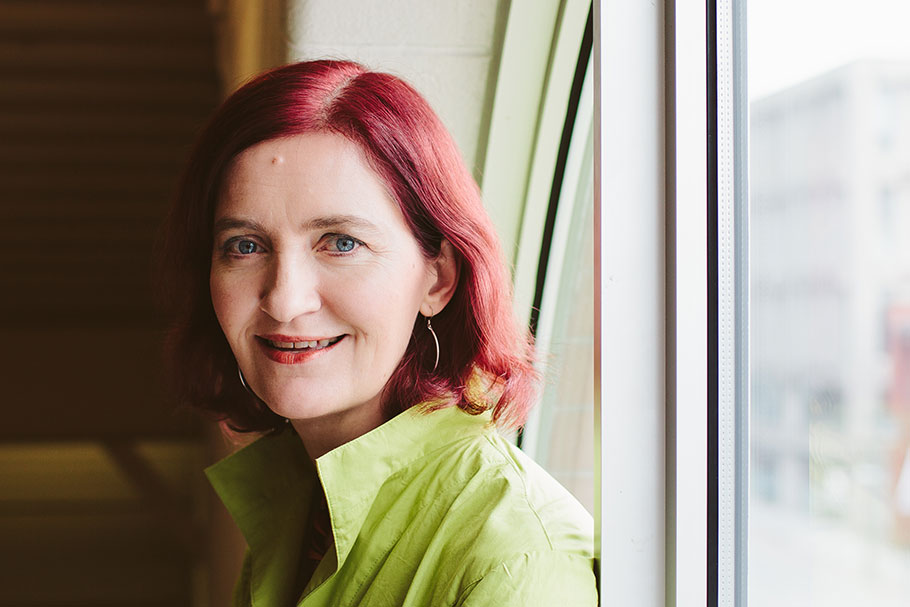On Thursday, Trinity and UNESCO City of Literature had the pleasure of hosting an evening with bestselling Irish writer, Emma Donoghue, to talk about her new novel, Akin. Akin is Donoghue’s first contemporary novel since the widely successful Room, and her 10th novel to date. Akin centres around the complicated relationship between a retiree, Noah, and his grand-nephew, Michael, who is unexpectedly placed in his care. The novel begins in New York City, before moving to Noah’s birthplace Nice, where he has not been since he escaped during World War II.
The Ed Burke Theatre was full, and copies of Donoghue’s work were available to purchase outside the door. The event began with a brief introduction to Donoghue’s career and her new novel, which was given by Dr. Kevin Power, a novelist and professor at Trinity’s Oscar Wilde Centre.
Having expected a lecture-style talk, it was refreshing that most of the event centred around a Q&A session. After reading a short extract from Akin, the floor was opened up to grant both Power and the audience the opportunity to ask Donoghue questions about the new novel as well as her work in general. Despite being asked challenging questions, Donoghue managed to answer them all with grace, eloquence and a sense of humour that had the whole room laughing many times over. She had the kind of charismatic personality that made leaving the event a difficult feat for attendees.
Donoghue discussed how her novels have shifted focus from the likes of Stir-fry and Hood since she had her own children to what Power keenly observed to be her “duty of care” novels. This, she said, stems from becoming very interested in the impact of looking after a child on the adult and what it would be like to suddenly have “parenthood thrust upon you”. However, Donoghue also acknowledged that the character of a child is a powerful literary device in how they can bring an unfiltered, intuit perspective to a story, while also allowing for moments of humour and uplift.
Delving into broader topics about fiction in general, she begroaned questions about the “message” of her novels, as she joked: “If I had a message for the world, I would just put it on Twitter”. To her, writing a novel seemed like an awfully long-winded way to get her supposed message out.
Additionally, Donoghue addressed the challenges and joys of screenwriting, something she has been doing more of since her success with the Oscar-nominated screenplay for Room. She described adapting novels by other writers as trying to step into the novel’s world and see exactly how the writer did it. After her experiences with Room, the author expressed that she enjoys seeing how a piece of writing changes in the screenwriting process and is not concerned with a need to protect her work.
Throughout the event, Donoghue created an atmosphere of ease for her audience due to her down-to-earth nature and comical anecdotes, allowing attendees to catch an insightful glimpse into her writing process.
In Akin, Donoghue explores matters of class and generational differences by writing a novel that, despite its title, is defined by juxtaposition and by the characteristics that set her two main characters apart. Yet, together they start to unravel their own stories as they both grapple with the uncertainty of their past and their families, leading to the realisation that despite all of their differences they are, in fact, akin.






